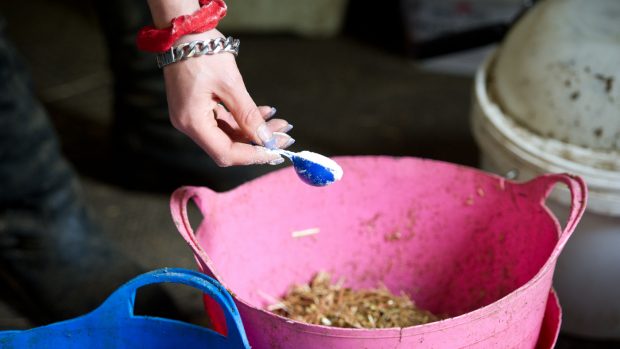Should riders be allowed to compete on horses that have been given a small amount of bute?
That has been the subject of heated discussion this afternoon at a meeting of the International Equestrian Federation (FEI) in Copenhagen, Denmark.
The liveliest debate during a meeting to unveil the FEI’s completed work on “clean sport” centred on the proposal for a complete policy shift to allow horses to compete on low levels of painkillers.
A new list of banned substances and controlled medication is the lynchpin of plans unveiled this afternoon in advance of voting during tomorrow’s general assembly.
But there are two lists. The first — “current list” — continues with the FEI’s zero-tolerance policy. The second “progressive list” would allow low levels of non-steroidal anti-inflammatory (NSAIDs) within horse sport around the world.
“If the FEI accepts this, there will be uproar in many countries,” warned Bo Helander of Sweden. “It’s completely unacceptable for horse welfare, and changes the whole philosophy of the FEI.”
Tomorrow the nearly 100 national federations assembled in Copenhagen will vote on whether phenylbutazone (bute), flunixin and salicyclic acid (aspirin) should be allowed.
“Let’s talk about doping and not doping again,” urged Ulf Helgstrand, president of the Danish equestrian federation. “If we introduce the list I’m afraid the public and sponsors will shoot us down and say we only want to stop the number of positive tests.”
And Frank Kempermann, general director of Aachen warned he would lose sponsors, adding: “I can’t understand how this proposal can be made.”
Barbados, France, Norway, Germany, America and Ireland added their voices of dissent.
There was only one voice of support — a vet from South Africa who asked why, if a horse steps on stone or suffers mild colic the day before a big competition can bute not be given.
“If it happened to a human, he would be allowed to take Voltaren and ride,” he said. “It is so expensive to get a horse to an event, we should be able to treat.”




